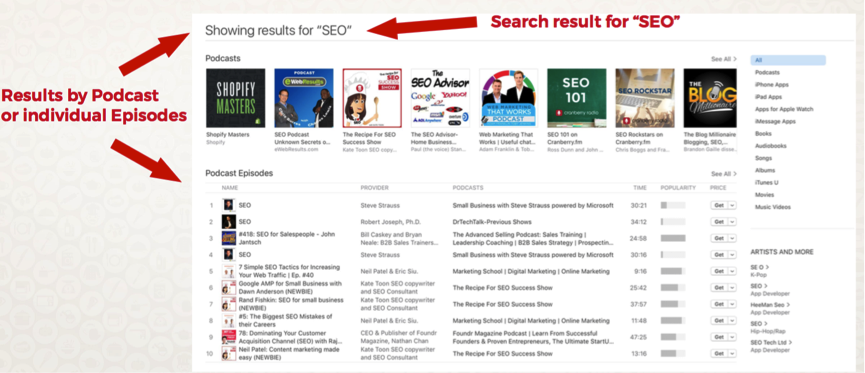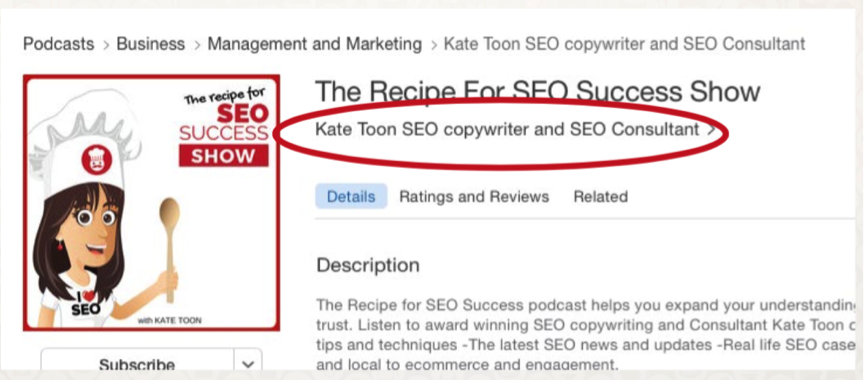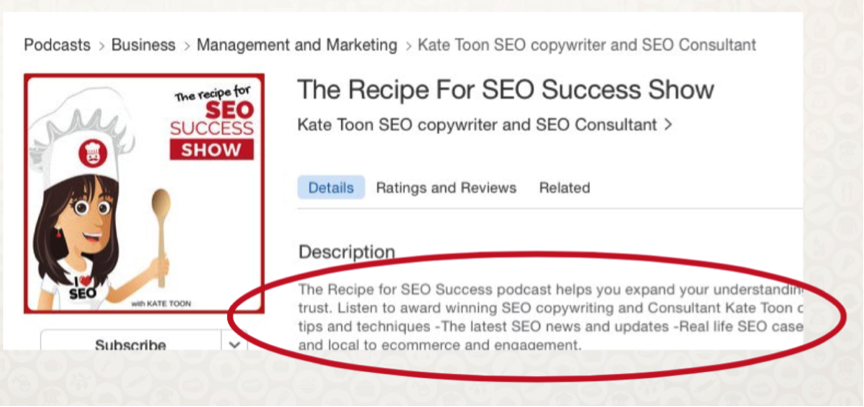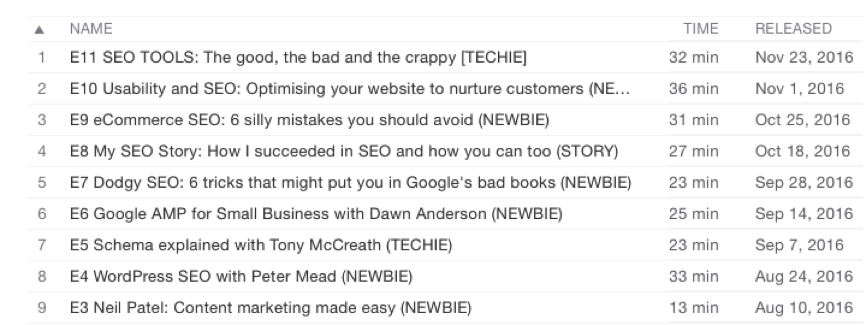ProBlogger: Podcast SEO: How to Improve Your iTunes Ranking | |
| Podcast SEO: How to Improve Your iTunes Ranking Posted: 20 Dec 2016 05:00 AM PST This is a guest contribution from Kate Toon, SEO expert and trainer at The Recipe for SEO Success. When most people start their own podcast, the last thing on their minds is SEO. They're too busy developing eye-catching graphics, buying a cool microphone, and trying not to make that horrible saliva sound when they speak. Why? Because most podcasters think SEO is all about Google, and nothing to do with iTunes, Stitcher or SoundCloud. But the truth is, just as we have website optimisation and video optimisation, there are ways to optimise podcasts. And in this post I'm going to take you through some simple steps you can take to drive your podcast up the rankings. Why podcast SEO mattersPodcasting is growing in popularity. More and more bloggers and business owners are seeing it as a way to build a community and engage customers. But as more and more people launch their podcasts it becomes harder and harder to be found—especially in the coveted top spots in category lists. SEO allows smaller podcasts to compete with the big boys, and be found quickly by their target audience. However, while Google freely shares information about what will and won't work in terms of ranking, iTunes plays its cards a little closer to its chest. And unlike website SEO, not a lot has been written about podcast SEO. The tips I'm about to give you are based on extensive reading, consulting with other SEO types, and my own extensive testing (otherwise known as 'trial and error'). Note: While this article focuses on iTunes as the primary source of podcasts, my tips should work on all podcast platforms. iTunes is a search engineThe first step to understanding podcast optimisation is realising that iTunes is yet another search engine. It has content, an index to display the content, a bot to crawl the content, and a clever string of code (or algorithm) to decide who ranks above whom. But just like Google, iTunes doesn't have ears. It can't hear your podcast, and has no idea what your spoken content is about. So you have to tell it, using the text your write for your podcast. Step 1: Ignore the noiseIt's important to understand where optimisation will help, and where it won't have any impact whatsoever. Optimisation will not help with:
Put simply, iTunes SEO will help people who use the search box in the top right of the iTunes screen. Step 2: Never forget the number one ruleJust as with websites, the number one rule is to optimise for humans first. Draw your audience in first, and the Google and iTunes bots will follow. So the first step is to think about what search term you'd like to be found for. What would your audience (current and potential) type into the search box to find your podcast? A good idea to to sit down and brainstorm ideas with a buddy, or pose the question on your business Facebook page and see what responses you get. For my SEO podcast, someone might type keywords related to the general topic:
If they have a specific problem, they might go with something like:
And if I'm lucky, they may know about me and my brand and type in:
Just as with blogging, our goal is to create a list of possible keywords relating to our industry and our topics. Here's a great little keyword tool to help you get started (don't be put off by the name), and a smashing post with additional tips. Step 3: Create a memorable podcast nameWhile including a keyword in your podcast title will certainly help your efforts to rank, it's important to also think about your overall brand. If you've already established a well-known name, consider using it for your podcast. Don't reinvent the wheel. Step 4: Combine your talent with your host nameObviously, the name of the host should be… well, the host's name. But if you can, include some relevant keywords to make it sound a bit like a job title. Don't stuff in heaps. Just use one of two that are relevant. Step 5: Describe your showMost SEO experts agree that your podcast description doesn't influence the iTunes search. But it plays an important role in subscriptions and downloads. Your description helps people understand what the podcast is about. So keep it short, clear and enjoyable to read.
Now we need to focus on our episode titles. These titles (or headlines) are vitally important, as they'll show up on iTunes, in the Google Search results, and when we share our podcasts on social media. Put some time and effort into creating really compelling copy—just as you do when writing a blog post—and ensure what you write is:
Here are some more tips on writing headlines. Step 7: Think about formattingA lot of podcasters waste precious characters by shoving the word EPISODE at the start of their podcast headline. While it's good to add your own numbering (so people can easily recommend particular episodes to friends and colleagues), keep it short and simple. As you can see in the screenshot below, I keep it to a simple E followed by the episode number. This makes it easy for people to scan my episode list and find a topic they're interested in. And think about what would appeal more to your audience—the topic or the guest. If you have a well-known guest, consider front-loading the episode title with their name. Final tips, and my experienceWith two podcasts to my name, I've learned a thing or two about making them visible. Here are some other factors that will affect your ability to rank:
Kate Toon, Head Chef at The Recipe for SEO Success, is an award-winning digital expert with years of experience. Kate helps bloggers, big brands and small business owners grapple the Google beast. Her friendly, fun approach to DIY SEO makes it easier to learn. Check out her SEO podcast on iTunes. The post Podcast SEO: How to Improve Your iTunes Ranking appeared first on ProBlogger. |
| You are subscribed to email updates from ProBlogger. To stop receiving these emails, you may unsubscribe now. | Email delivery powered by Google |
| Google Inc., 1600 Amphitheatre Parkway, Mountain View, CA 94043, United States | |





0 comments:
Post a Comment